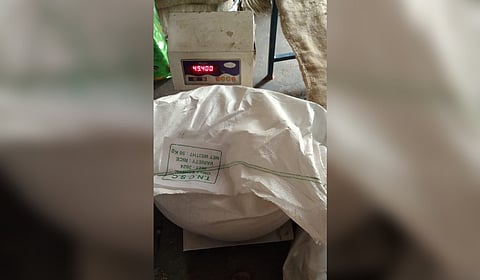

COIMBATORE: Besides spillage, the use of High Density Polythene (HDPE) bags to pack foodgrains instead of jute sacks is causing revenue loss to cooperative societies as there is no resale value, say supervisors at PDS shops.
According to supervisors, the quantity of goods, especially rice and foodgrains, sent from the civil supplies godown to the shops in polythene bags becomes less as billhooks used by workers to load and unload them damage the sacks resulting in spillage. The workers said the department should pack materials in jute.
G Rajendran, president of Tamil Nadu fair price shop employees union, said, “Earlier rice, sugar and dhal were sent in jute bag. But in the last eight months, they are packing it in white-colour HDPE bags. Now around 30 -40% goods are sent in plastic bags to ration shop. The problem is, quantity of leakage from plastic bags is high.
The weight of a jute bag will be 350 gram. A rice bag’s actual weight is 50 kg and adding the jute bag’s weight the quantity should be 50.350 kg per sack. Nowadays, weight for a bag of rice packed in polythene is less than 49 kg. Eventually, supervisors have to bear the loss,” he added.
He also pointed out that societies are losing revenue in getting of goods in plastic bags. “Ration shops are administered by cooperative societies. The societies generate revenue by selling empty jute bag up to `22 per bag. If a ration shop has 1,500 ration cards, normally it would get nearly 200 jute sack per month. But the resale revenue of plastic bag is less than one rupee,” he said.
A supervisor, who did not want to be named said, “During January - February, my shop was supplied the good in plastic bags up to 80%. However, now it is getting reduced 30 - 40%. Mostly sugar is sent in plastic bag. We are forced to bear a minimum of 150 - 200 kg rice per month due to wastage and reduction of quantity in sacks.”
When contacted, P Palanikumar, senior regional manager of civil supplies department, said “Rice sent from Food Corporation of India (FCI) is packed in jute bag. Rice from godowns of the National Cooperative Consumers’ Federation is sent in plastic bags in the recent time. We have taken up the issue with our higher officials.”